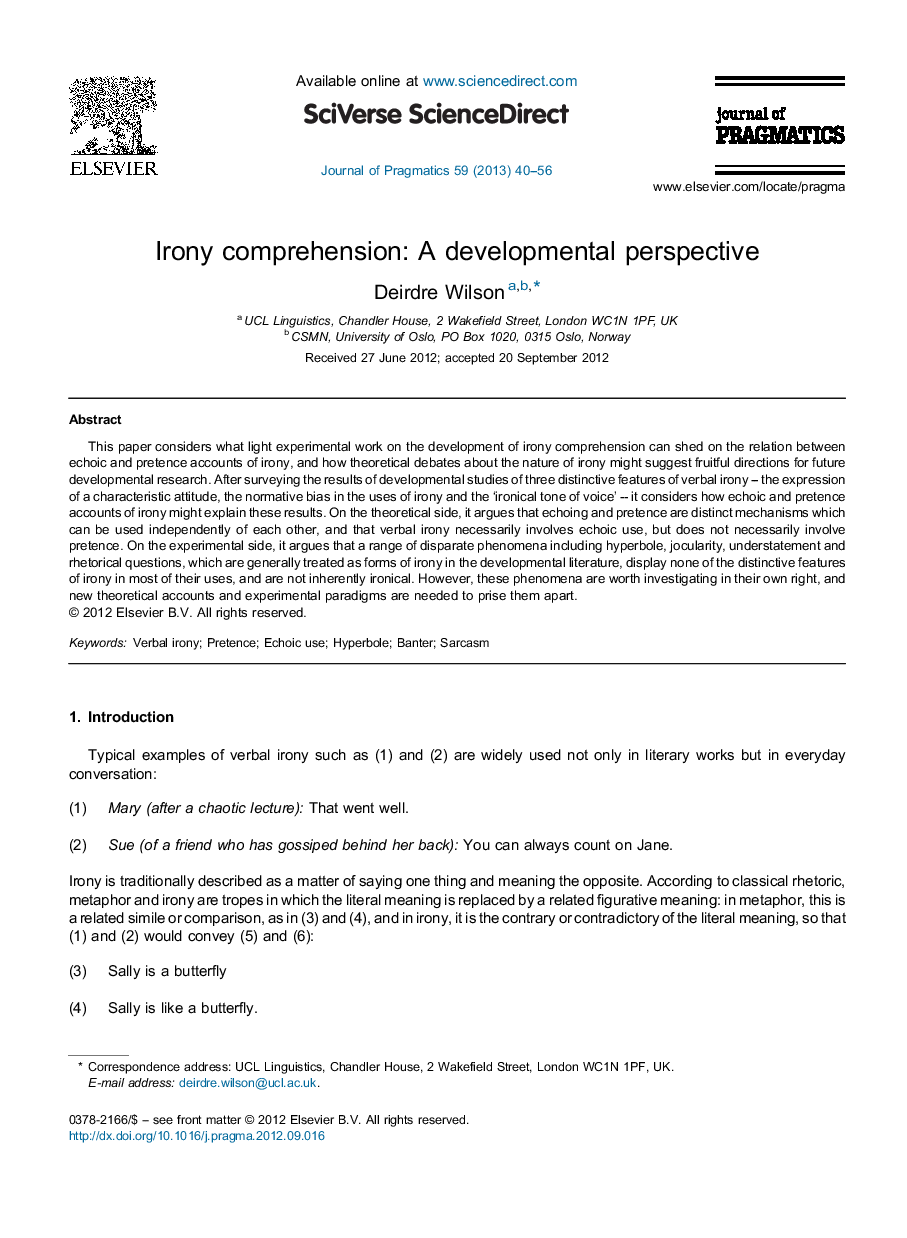| Article ID | Journal | Published Year | Pages | File Type |
|---|---|---|---|---|
| 932820 | Journal of Pragmatics | 2013 | 17 Pages |
This paper considers what light experimental work on the development of irony comprehension can shed on the relation between echoic and pretence accounts of irony, and how theoretical debates about the nature of irony might suggest fruitful directions for future developmental research. After surveying the results of developmental studies of three distinctive features of verbal irony – the expression of a characteristic attitude, the normative bias in the uses of irony and the ‘ironical tone of voice’ – it considers how echoic and pretence accounts of irony might explain these results. On the theoretical side, it argues that echoing and pretence are distinct mechanisms which can be used independently of each other, and that verbal irony necessarily involves echoic use, but does not necessarily involve pretence. On the experimental side, it argues that a range of disparate phenomena including hyperbole, jocularity, understatement and rhetorical questions, which are generally treated as forms of irony in the developmental literature, display none of the distinctive features of irony in most of their uses, and are not inherently ironical. However, these phenomena are worth investigating in their own right, and new theoretical accounts and experimental paradigms are needed to prise them apart.
► Explains three distinctive features of verbal irony. ► Shows that echoic use, but not pretence, is essential to irony. ► Distinguishes irony from parody. ► Shows that hyperbole, rhetorical questions and jokes are not inherently ironical. ► Suggests future directions for developmental research.
